#AutonomousVehicles
Toyota Investing $500 Million Into Uber for Driverless Partnership
Toyota Motor Corp. is set to drop about $500 million into Uber Technologies Inc. under an agreement that will see both companies work jointly on self-driving vehicles. The ultimate goal is for Toyota to bring to market its own autonomous vehicles using some of Uber’s hardware, with direct access to its ride-sharing network.
According to the automaker, the initial push will use the Sienna minivan as a platform for the “Autono-MaaS” (autonomous-mobility as a service) fleet. This makes the arrangement sound very similar to Waymo’s deal with FCA, which allows Alphabet’s autonomous arm to use the Chrysler Pacifica as a test platform for its self-driving hardware in exchange to having improved access to autonomous technology. However, Toyota said the partnership’s primary goal is improving safety and lowering transportation costs for the public.
Public Becoming More Apprehensive About Robotic Cars, Here's Our Best Guess as to Why
A little knowledge is a dangerous thing. Despite the public having become more aware of autonomous vehicles over the last several years, acceptance of the technology appears to be at an all-time low.
According to a recently published survey from Cox Automotive, general knowledge of self-driving cars has grown over the last two years by around 20 percent to 78 percent of a sample audience. However 68 percent of those respondents also felt the technology was potentially unsafe, which represents a nearly 20 percent increase within the same timeframe.
Likewise, general apprehension grew alongside the level of driving autonomy with complete computerized control being the scariest and 84 percent of the sample saying human drivers should always have the ability to take over when they wanted. The public appears to be turning against self-driving vehicles and automakers are going to need to figure out why because these findings are not an isolated incident.
Ford Keen on Ditching the Steering Wheel, Outlines Autonomous Vision
Ford Motor Co. recently released a 44-page report, entitled “ A Matter of Trust,” which clearly states its vision of the autonomous future the tech industry’s attempting to stuff down our collective throats. The file covers Ford’s overall philosophy on self-driving vehicles, a milestone timeline, answers frequently asked questions, and states what the company intends to do over the next couple of years.
While we applaud any automaker that takes the initiative to craft a comprehensive report detailing what they’re plotting, we can’t say we’re enthralled with what we’ve read.
A large portion of the report focuses on giving a general idea of how autonomous vehicles function, what they’ll have to cope with, and answering difficult questions in a frank and honest manner. But Ford also said it intends to launch an AV in 2021 that lacks a steering wheel or pedals. We weren’t happy hearing about General Motors’ development of a car without driver controls back in January and nothing has changed our minds since then.
What's the Chinese Electric Car Startup Survival Rate? One Percent, An Investor Predicts
China has bit of a gambling problem when it comes to electric car manufacturers, though it should probably be referred to as a “gambling solution.”
The country dumps vast sums of money into hundreds of EV startups, effectively hedging its bets by placing chips on absolutely everyone. With $15 billion already invested, the nation intends to put another $47 billion toward the cause — plus whatever funding investment firms decide to contribute. While the strategy has definitely stimulated the economy, created jobs, and supersized the industry, there’s growing concern that creating a battle royale between startups could blow up in China’s face.
Even if it doesn’t, there’ll still be a bunch of automakers eating each other until only a handful remain. Previous estimates had that number riding around 5 percent of the whole. But NIO Capital, the Chinese investment firm that’s already invested a gratuitous amount of funds into advanced automotive tech, claims the actual number will be far lower — probably around 1 percent.
Autonomous Tech Won't Displace Truckers, Biased Studies Claim
Last year, the Center for Automotive Research said robotic vehicles will eventually displace professional drivers in figures that will be “certainly in the millions.” Meanwhile, Goldman Sachs predicted trucking job losses of 25,000 per month as autonomous vehicles roll out in earnest. Truckers are going to end up like pinsetters and switchboard operators — saddled with a career that have been nullified thanks to automation, until they become extinct. However, we’ve also heard there’s a lack of manpower within the industry and that’s helping spur development.
This year, a glut of new studies emerged that suggest self-driving vehicles will actually benefit truckers. Unfortunately, they all come from sources that really want you to be stoked with the technology.
Uber Killing Off Autonomous Trucking Division
Uber is shutting down its self-driving trucks unit due to a lack of progress and the controversy surrounding its multi-million dollar acquisition of Otto in 2016. The firm was purchased with the intent of developing self-driving cargo haulers, potentially saving the trucking company a fortune by outsourcing driving jobs to robots. But it was slow to reach that goal and ran head-on with a serious distraction almost immediately.
Initially, things looked promising. Otto was famous for engineering a truck that hauled a trailer full of beer across 120 miles of Colorado highway without human intervention. But it found a different sort of fame after its founder, Anthony Levandowski, took over as head of Uber’s self-driving car research and Waymo faulted him with handing over trade secrets.
As a former engineer for Google’s autonomous vehicle project (which would later evolve into Waymo), Levandowski was privy to sensitive information he was later accused of selling as part of the Otto buyout.
No Parking Required: Waymo Launches Shuttle Service to Walmart
Remember how everyone talked about autonomous vehicles like they would deliver humanity into a cleaner, safer future where all the disgusting trappings of our past would be a distant memory? It’s not playing out quite like that. In fact, as the reality of self-driving cars inches ever closer, we’re seeing weird corporate partnerships and companies looking to make a buck anywhere they can as the consumer serves double duty as master and commodity.
If you need a present-day example, look no further. Waymo, the autonomous arm of Google parent Alphabet Inc., is launching a pilot program this summer that intends to shuttle passengers to Walmart and other partner locales. Members of the firm’s “early rider program” will be able to catch a ride to the retail outlet after using its online component to place an order (which qualifies them for discounts in the future).
While the goods are being prepared at the store, Waymo will dispatch a self-driving Chrysler Pacifica to the customer in order to bring them to it — sort of like a reverse delivery service. However, Walmart is far from the only corporate partner Waymo has right now.
Ford Commits $4 Billion to the Future, Creates New AV Subsidiary
Ford Motor Company announced Tuesday that it has formed formed a subsidiary — Ford Autonomous Vehicles LLC — devoted entirely to autonomous vehicle development. That’s probably the catchiest name we’ve heard since Bank of America Corp or Waste Management Inc. However, you don’t need a clever moniker when you’re dumping $4 billion into a project, which Ford intends to do through 2023.
With all the current drama and distrust surrounding self-driving cars, we thought there was a chance automakers would cool off on pushing for it so aggressively. But while some OEMs curbed their futuristic rhetoric ever so slightly, practically everyone else kept the pedal to the metal — an analogy that will lose all meaning once computers drive us everywhere.
Let’s see what The Future™ looks like in and around Dearborn.
NHTSA Deputy Administrator: There's No Need to Regulate Autonomous Cars
Heidi King, deputy administrator of the National Highway Traffic Safety Administration, claims it’s too soon to begin imposing rules on self-driving vehicles. Thus far, the NHTSA as taken a supremely lax posture on handling autonomous vehicles in the hopes that a softer touch will assist in their swift development.
However, a cluster of fatal incidents involving advanced driving technology created fresh paranoia within the government.
While the argument could be made that those accidents demand a response from federal regulators, it’s also clear the government doesn’t have a firm grasp on the technology. Likewise, there’s little consensus among automakers that have only recently begun discussing how these vehicles should be standardized, and loads of conflicting opinions exist on the matter of safety. In the short term, advanced electronic aids allow motorists to become worse at driving. But, if fully autonomous vehicles function as intended, their long-term safety benefits could be immense.
The NHTSA claims the resulting confusion means it’s too early in the process to make any kind of definitive rulings.
Should Police Have the Ability to Track and Disable Self-driving Vehicles?
Autonomous vehicles have created an endless series of unanswerable questions. As the technology continues to advance, decisions on how best to implement it have not. We’ve yet to discern who is liable in the event of an accident, how insurance rules would change, if they can coexist effectively with traditional automobiles, how they will impact vehicle ownership in the long term, and the infrastructure necessary to ensure they’ll function as intended.
There’s also a myriad of security concerns involving everything from the very real prospect of vehicle hacking to automakers selling the personal information of drivers. Both of those topics are about to come to a head as automakers continue shifting toward connected vehicles.
In March, the U.S. Transportation Department met with auto industry leaders, consumer advocacy groups, labor unions, and others in an attempt to navigate the minefield that is autonomous integration. The department previously hosted similar roundtable discussions in December after releasing the new federal guidance for automated driving systems, called “ A Vision for Safety 2.0.” That guidance freed up automakers and tech firms to test self-driving vehicles with fewer regulatory hurdles to cope with.
However, the December report seemed to focus mainly on how little everyone outside the industry understands the new technology.
Maybe Autonomous Vehicles Don't Have to Look Like Steaming Sacks of Garbage
Thank God we don’t have to look at that Google self-driving car anymore. You know the one — shaped like an unhappy egg wearing a little hat? That one. The one that inspired visions of a future where life is so sterile and miserable that it wouldn’t be hard to imagine masses of people throwing themselves on the road in front of these pod-like commuting appliances.
Still, even as self-driving technology advances, we’re treated to concept vehicles that don’t exactly stir the soul. Some recent designs deserve kudos, but many still resemble motor pool rejects from A Clockwork Orange, terrifying gearheads and libertarians alike.
It doesn’t have to be that way, claims one automotive supplier. You can have your sexy car and still tell it to drive you around.
Uber Driver May Have Been Watching TV Before Fatal Collision: Police
The mash-up of fledgling technology that requires human vigilance to ensure safety and our natural inclination to become distracted by mobile devices appears to be the cause of the fatal Tempe, Arizona Uber crash in March.
According to a lengthy police report obtained by Reuters, the driver of the autonomous Volvo XC90 operated by Uber Technologies may have been watching the TV show The Voice in the moments leading up to the collision. The impact killed 49-year-old Elaine Herzberg, who was crossing the darkened street with her bicycle.
Train Station 2.0: Ford's Corktown Redevelopment Plan Unveiled, Won't Replace Dearborn
All eyes were on the now Ford-owned Michigan Central Station in Detroit’s Corktown neighborhood on Tuesday morning, as the automaker formally announced its plan for the derelict building and surrounding neighborhood.
Ford Motor Company recently took the century-old structure, abandoned since 1988, off the hands of its longtime owners, the Moroun family. There’s still no dollar figure attached to that deal, but that’s not what Tuesday was about. Ford’s plan, ambitious and big on vision, breaks down as this: there’ll be 2,500 Ford workers employed in the Corktown neighborhood, tasked with developing autonomous vehicles and related tech. The towering train depot, once restored, will serve as the nerve center.
Joining those employees in Ford-owned buildings scattered around the site will be an equal number of employees working for partners and suppliers, or so Ford hopes. The automaker’s aiming for a miniaturized version of Silicon Valley clustered around Michigan Avenue.
QOTD: Is the Road Your Prescription?
Yesterday’s questionable study regarding self-driving cars — in which the authors foresee a veritable utopia brought on by ultra-efficient, humanless robot cars — inspired the usual twinge of nausea in this author. Beware of any study that gleefully brushes aside massive job losses in certain sectors in order to tout increases in others. It’s usually the work of a zealot or someone who stands to bolster their personal wealth.
In this case, it also stands to separate you from the tactile experience of driving. Yes, there’s plenty of people who would gladly turn over their commute duties to an array of sensors and a digital brain — I think we’d all prefer that in stop-and-go situations — but if future roadways require a complete absence of human drivers in order to hit peak efficiency, we’d also be giving up the ability to de-stress. Driving means different things to different people. For some, it’s therapy.
Just how much of your driving is non-essential?
Report Claims Self-driving Cars Will Make So Much Money, No One Will Care About Employment Losses
There’s been plenty of discussion about how autonomous vehicles will effectively annihilate the trucking and taxi industries. We’ve certainly discussed it — in addition to concerns that self-driving vehicles may not reduce pollution and traffic congestion as promised.
Fear not, claims a recent report sponsored by Securing America’s Future Energy. The problem of self-driving cars displacing huge numbers workers is apparently overblown when compared to the economic impact as a whole. According to the study — “America’s Workforce and the Self-Driving Future” — the loss in employment opportunities should be offset by the potential advantages in safety, cheaper transportation, mobility, air quality, and individual productivity.
The report says that by 2050, AVs will contribute between $3 and $6 trillion in cumulative consumer and societal benefits to the U.S. economy. While it’s not clear how much of that will go into the pockets of people who’ve lost their jobs, it sure sounds great in theory.
But is this really the future of autonomous transportation? And who are these wizards of analysis who tell us the future looks so damn bright?





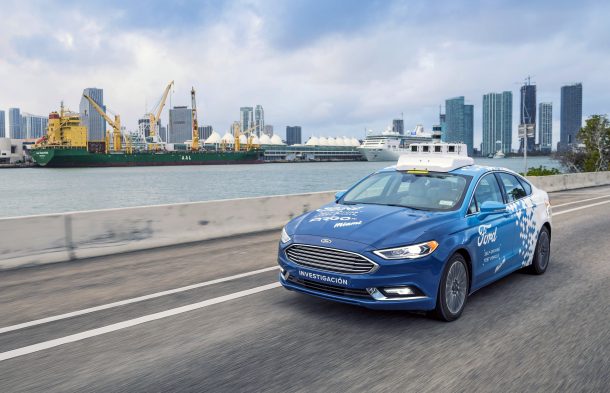
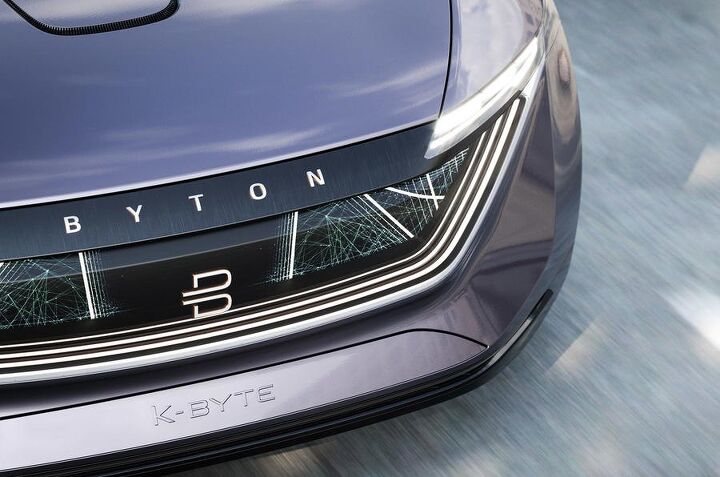




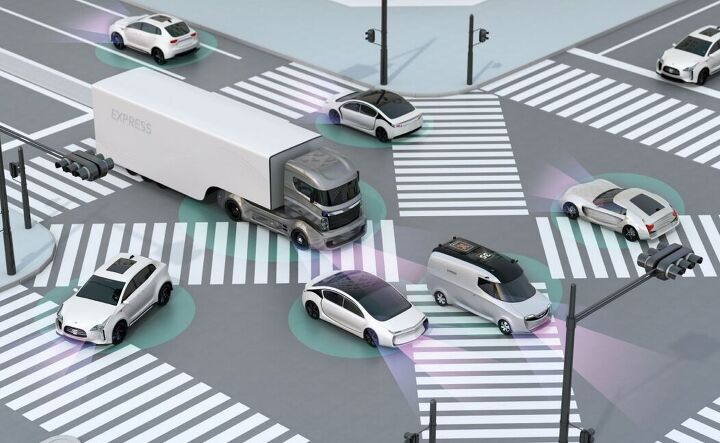

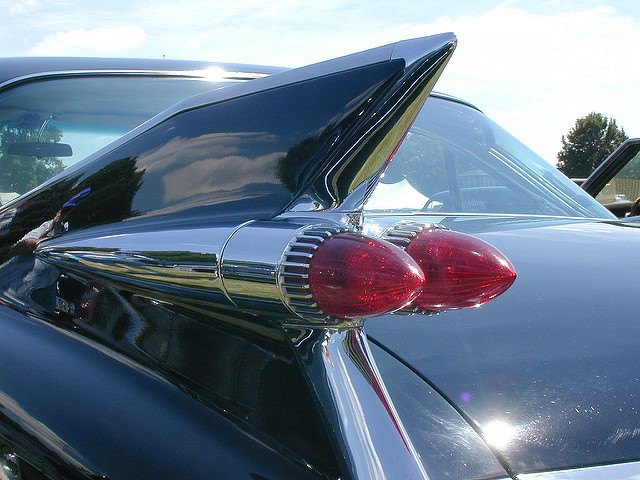
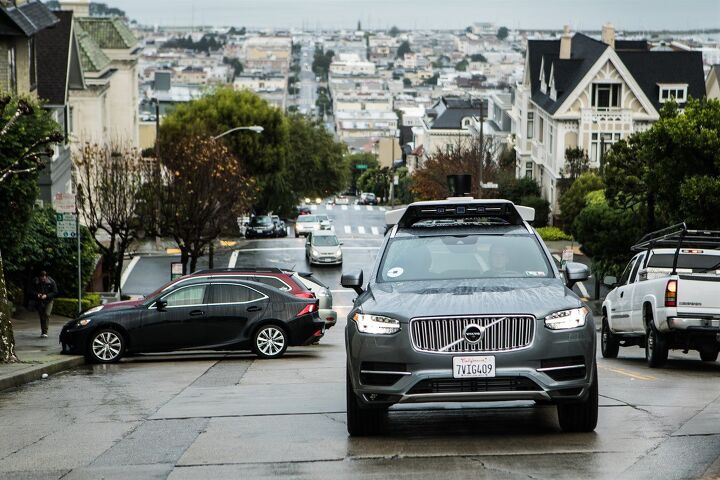

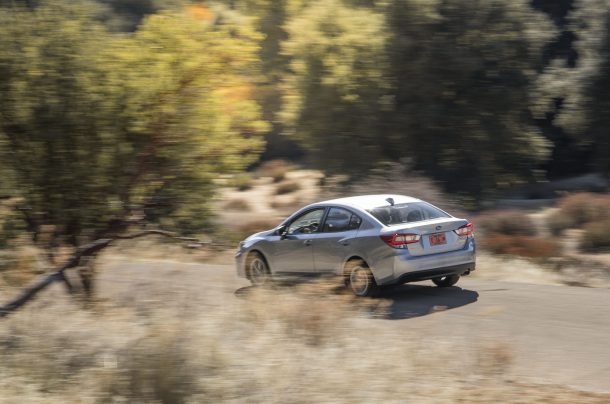
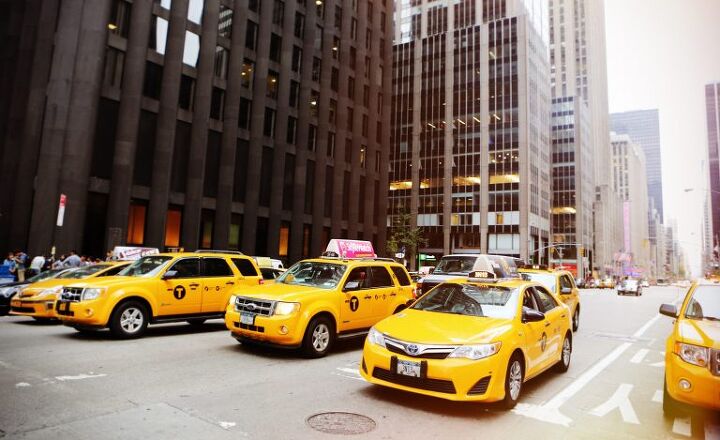












Recent Comments